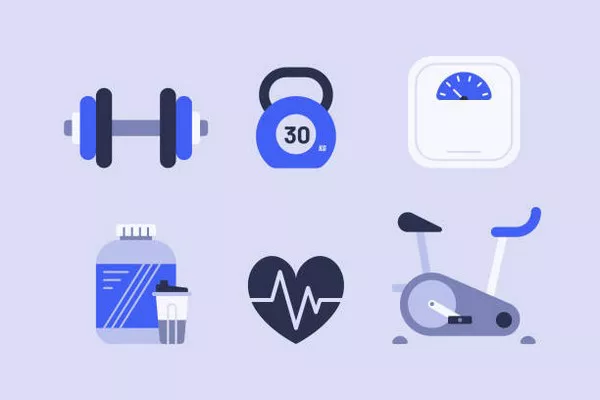As the new year unfolds, many are setting their sights on achieving lasting fat loss. But the key to success isn’t simply about cutting calories or hitting the gym hard—it’s about incorporating scientifically backed strategies that cater to your unique needs. Here are 10 expert tips to help you reach your fat loss goals in 2025, all grounded in recent research.
1. Prioritize Protein for Better Results
Protein plays a crucial role in fat loss, not just for muscle preservation, but also for enhancing feelings of fullness. Studies show that higher protein intake can help with fat loss while keeping hunger at bay. The American Journal of Clinical Nutrition suggests a daily intake of 1.6 to 2.2 grams of protein per kilogram of body weight, with options like lean meats, fish, eggs, legumes, and dairy as excellent sources.
2. Mix Resistance Training with Cardio
Exercise is an essential component of fat loss, but combining resistance training with cardiovascular exercise is proven to be more effective than either method alone. Research from Obesity Reviews emphasizes that resistance training maintains lean muscle, while cardio optimally burns fat. Aim for three to four resistance sessions and two to three cardio sessions per week.
3. Track Your Caloric Intake
Creating a calorie deficit is fundamental to fat loss, and tools like calorie tracking apps can help you stay on track. A meta-analysis in The Journal of the Academy of Nutrition and Dietetics found that those who monitor their calories are more likely to achieve their weight loss goals. Consistency is key in maintaining this deficit while still meeting nutritional needs.
4. Choose Whole, Unprocessed Foods
Nutrient-dense whole foods, like vegetables, fruits, whole grains, and lean proteins, can naturally reduce calorie intake while keeping you full longer. A study in Cell Metabolism concluded that diets rich in minimally processed foods led to a spontaneous reduction in calorie consumption, thanks to their higher fiber and protein content.
5. Reduce Liquid Calories
High-calorie drinks such as sugary sodas and alcohol add up quickly without providing lasting satiety. Research in Public Health Nutrition found that sugary beverages are strongly linked to increased fat accumulation. Instead, hydrate with water, herbal teas, or black coffee to keep your calorie count in check.
6. Explore Intermittent Fasting
Intermittent fasting (IF) can help regulate calorie intake and boost metabolic health. Research published in Translational Research suggests that time-restricted eating methods like the 16:8 or 5:2 protocols can accelerate fat loss while preserving muscle mass. Incorporating fasting periods into your routine could be a game-changer.
7. Keep Stress in Check
Chronic stress leads to elevated cortisol levels, which are associated with abdominal fat gain. A study in Psychoneuroendocrinology revealed that stress-reducing activities like mindfulness and meditation can lower cortisol and assist in fat loss. Integrating stress management strategies such as yoga or deep breathing exercises into your daily life is essential.
8. Prioritize Sleep for Fat Loss
Inadequate sleep can disrupt the hormones that control hunger, leading to overeating and weight gain. A study published in Annals of Internal Medicine found that individuals who slept only 5.5 hours per night experienced less fat loss than those who slept 8.5 hours. Aim for 7-9 hours of quality sleep each night to keep your metabolism in check.
9. Stay Hydrated
Hydration is often overlooked but plays a pivotal role in fat loss. Drinking enough water increases feelings of fullness and boosts metabolic rate. A study in The Journal of Clinical Endocrinology & Metabolism showed that drinking 500ml of water could temporarily increase metabolic rate by 30%. Make sure to drink at least 2-3 liters of water daily to stay properly hydrated.
10. Set Achievable Goals and Monitor Progress
Setting realistic, measurable goals is crucial for sustainable fat loss. A review in Behavioural Medicine emphasizes that small, achievable targets lead to better outcomes. Tracking your progress through methods like body composition analysis, progress photos, and performance metrics will keep you motivated and focused.
By integrating these science-backed strategies into your daily routine, you’ll be well on your way to achieving sustainable fat loss in 2025. Remember, consistency and patience are key, so stay focused and committed to your goals.
Related Topics:
Fasted Workouts: A Potential Fitness Strategy or a Metabolic Misstep?


